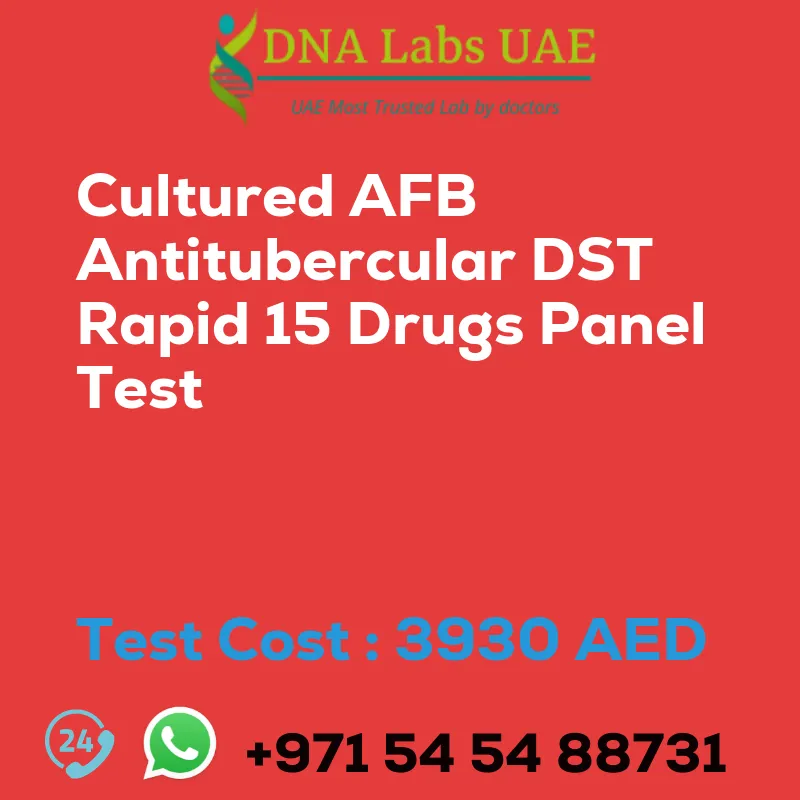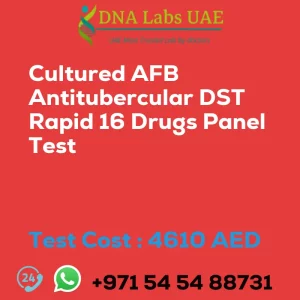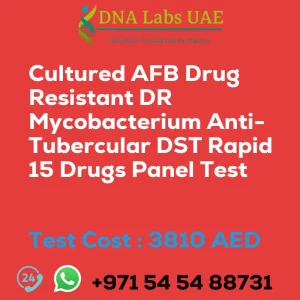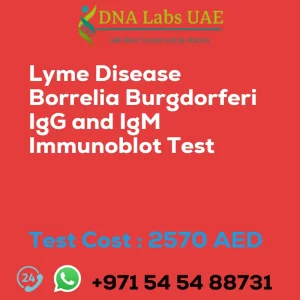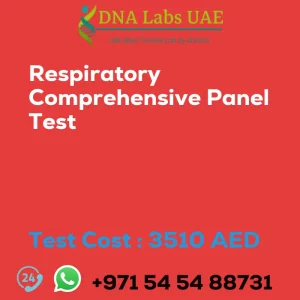CULTURED AFB ANTITUBERCULAR DST RAPID 15 DRUGS PANEL Test
The CULTURED AFB ANTITUBERCULAR DST RAPID 15 DRUGS PANEL test is a laboratory test used to determine the susceptibility of the tuberculosis-causing bacteria (Mycobacterium tuberculosis complex) to various antitubercular drugs.
Test Components:
- Streptomycin
- Isoniazid
- Rifampicin
- Ethambutol
- Pyrazinamide
- Clofazimine
- Ethionamide
- Capreomycin
- Kanamycin
- Amikacin
- Ofloxacin
- PAS
- Cycloserine
- Levofloxacin
- Moxifloxacin
Price: 3930.0 AED
Sample Condition: Submit pure growth of Mycobacterium tuberculosis complex on appropriate media in sterile screw capped container in a sealed plastic bag. Ship refrigerated OR when used with other AFB culture or Mycobacteria identification tests, the pure growth obtained in the Laboratory from specimens already submitted will be processed for Antitubercular Sensitivity.
Report Delivery: Sample daily by 3.30 pm; Report 21 days
Method: Automated Fluorescent
Test Type: Tuberculosis
Doctor: Physician
Test Department: DNA Labs UAE
Pre Test Information:
No special preparation required
Test Details:
The CULTURED AFB ANTITUBERCULAR DST RAPID 15 DRUGS PANEL test is a laboratory test used to determine the susceptibility of the tuberculosis-causing bacteria (Mycobacterium tuberculosis complex) to various antitubercular drugs. This test is performed on a culture of the bacteria obtained from a patient’s sputum or other clinical samples.
The test panel includes 15 different drugs commonly used in the treatment of tuberculosis, such as isoniazid, rifampin, ethambutol, streptomycin, and fluoroquinolones. The purpose of the test is to identify which drugs are effective in killing the bacteria and which drugs the bacteria have developed resistance to.
The test is typically performed using a method called the proportion method, where different concentrations of each drug are added to the bacterial culture and the growth is observed. If the bacteria continue to grow in the presence of a particular drug, it indicates resistance to that drug. If the growth is inhibited, it suggests susceptibility to the drug.
The results of the test help guide the choice of appropriate antitubercular drugs for the treatment of tuberculosis, especially in cases where drug resistance is suspected or confirmed. This allows healthcare providers to tailor the treatment regimen to the specific drug susceptibility profile of the bacteria, improving the chances of successful treatment and preventing the development of further drug resistance.
| Test Name | CULTURED AFB ANTITUBERCULAR DST RAPID 15 DRUGS PANEL Test |
|---|---|
| Components | *Streptomycin*Isoniazid*Rifampicin *Ethambutol*Pyrazinamide *Clofazimine *Ethionamide*Capreomycin*Kanamycin *Amikacin*Ofloxacin*PAS *Cycloserine *Levofloxacin*Moxifloxacin |
| Price | 3930.0 AED |
| Sample Condition | Submit pure growth ofMycobacterium tuberculosis complexon appropriate media in sterile screw capped container in a sealed plastic bag. Ship refrigerated ORwhen used with other AFB culture or Mycobacteria identification tests, the pure growth obtained in the Laboratory from specimens already submittedwill be processed for Antitubercular Sensitivity. |
| Report Delivery | Sample Daily by 3.30 pm; Report 21 days |
| Method | Automated Fluorescent |
| Test type | Tuberculosis |
| Doctor | Physician |
| Test Department: | |
| Pre Test Information | No special preparation required |
| Test Details |
The CULTURED AFB ANTITUBERCULAR DST RAPID 15 DRUGS PANEL test is a laboratory test used to determine the susceptibility of the tuberculosis-causing bacteria (Mycobacterium tuberculosis complex) to various antitubercular drugs. This test is performed on a culture of the bacteria obtained from a patient’s sputum or other clinical samples. The test panel includes 15 different drugs commonly used in the treatment of tuberculosis, such as isoniazid, rifampin, ethambutol, streptomycin, and fluoroquinolones. The purpose of the test is to identify which drugs are effective in killing the bacteria and which drugs the bacteria have developed resistance to. The test is typically performed using a method called the proportion method, where different concentrations of each drug are added to the bacterial culture and the growth is observed. If the bacteria continue to grow in the presence of a particular drug, it indicates resistance to that drug. If the growth is inhibited, it suggests susceptibility to the drug. The results of the test help guide the choice of appropriate antitubercular drugs for the treatment of tuberculosis, especially in cases where drug resistance is suspected or confirmed. This allows healthcare providers to tailor the treatment regimen to the specific drug susceptibility profile of the bacteria, improving the chances of successful treatment and preventing the development of further drug resistance. |

